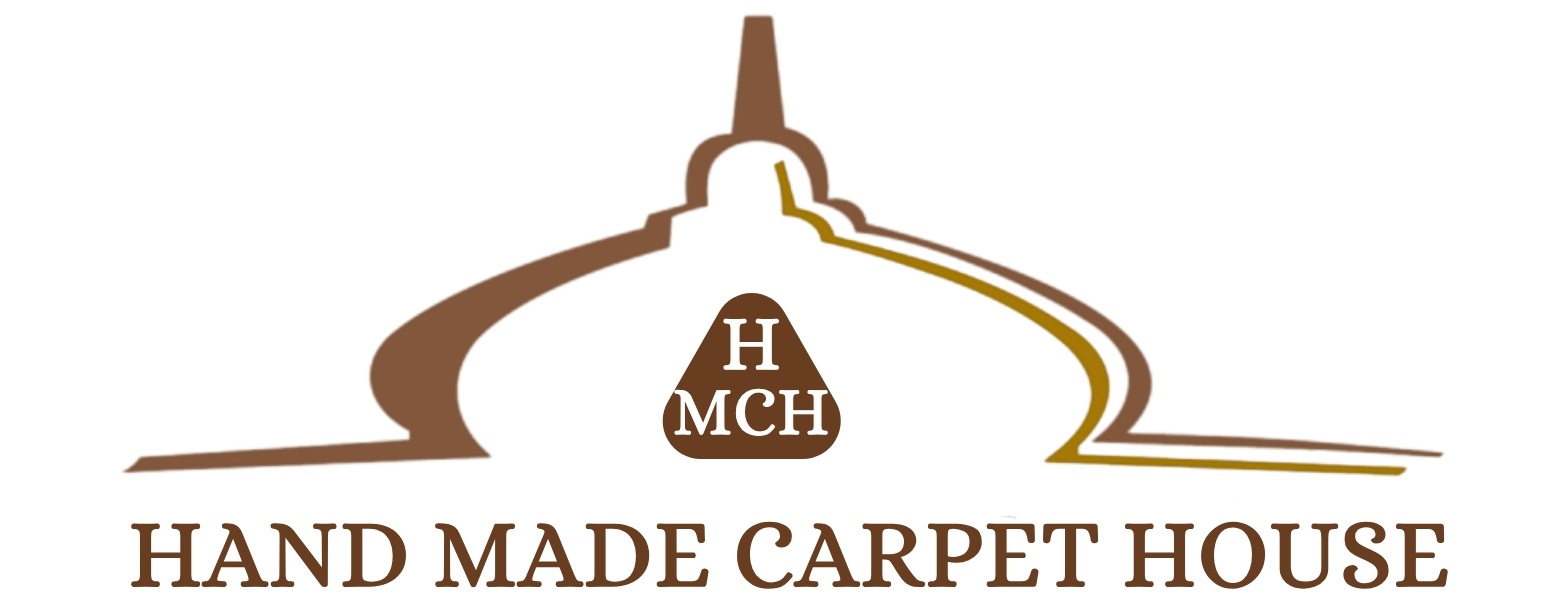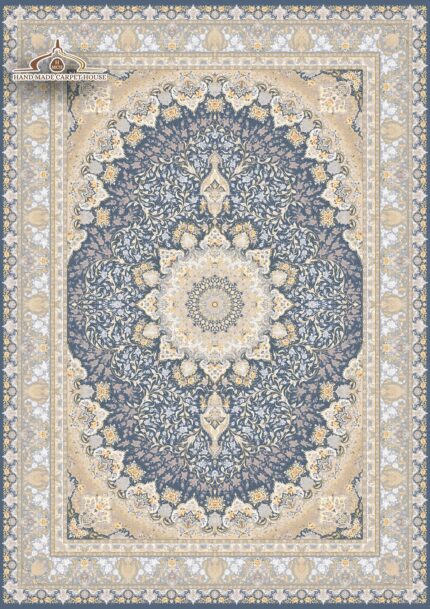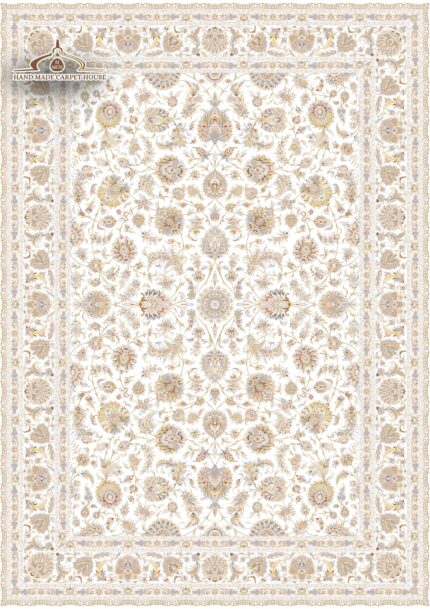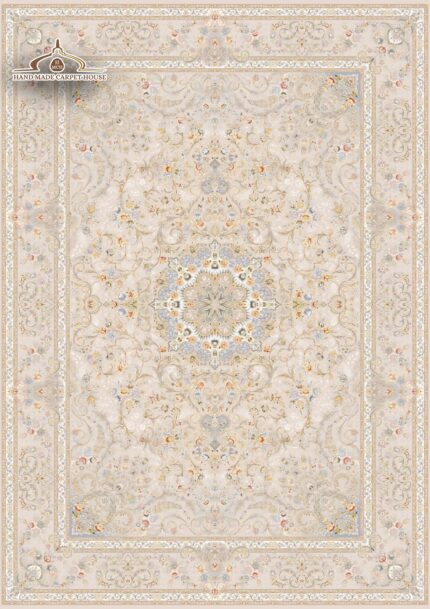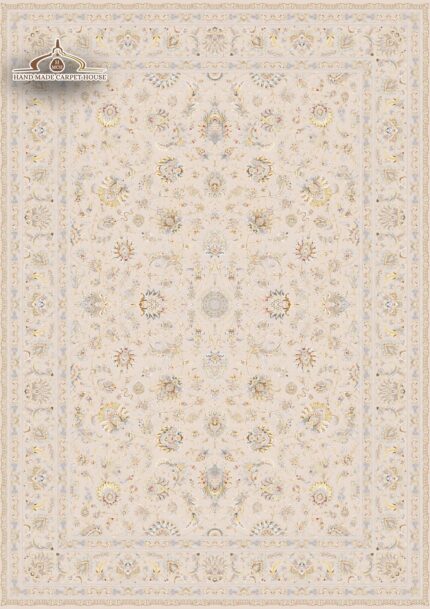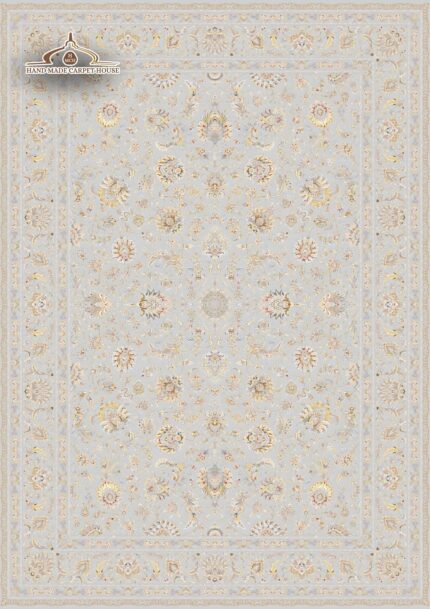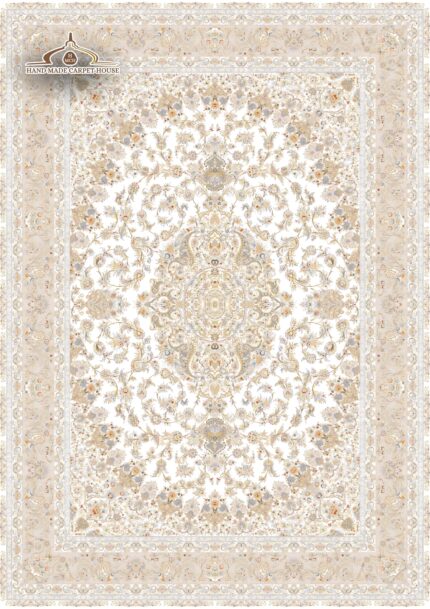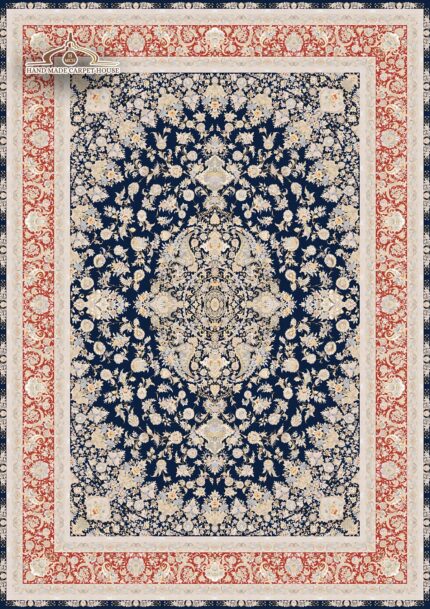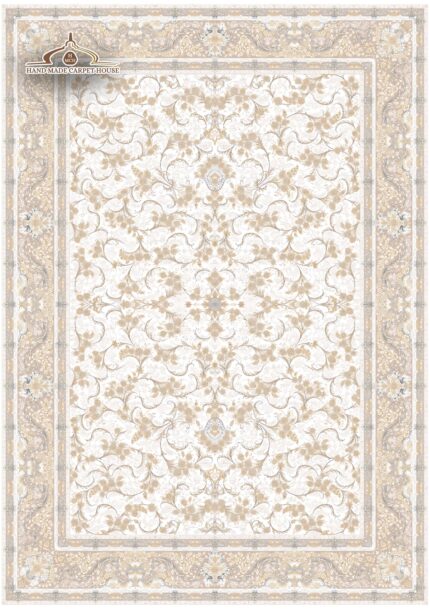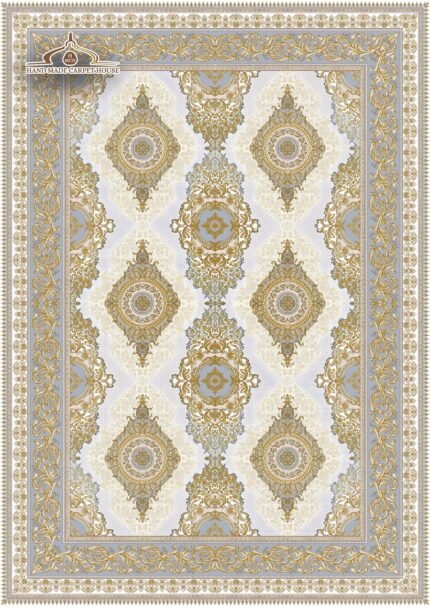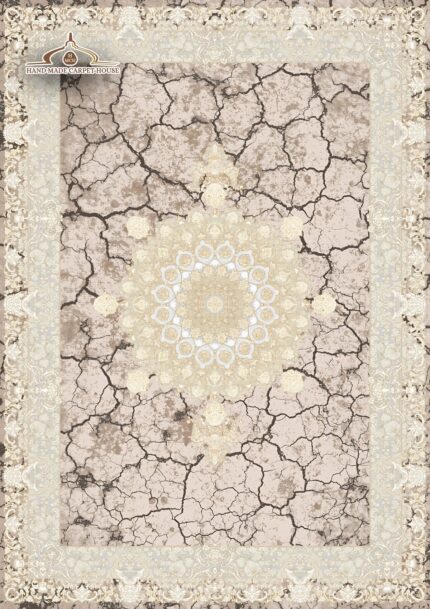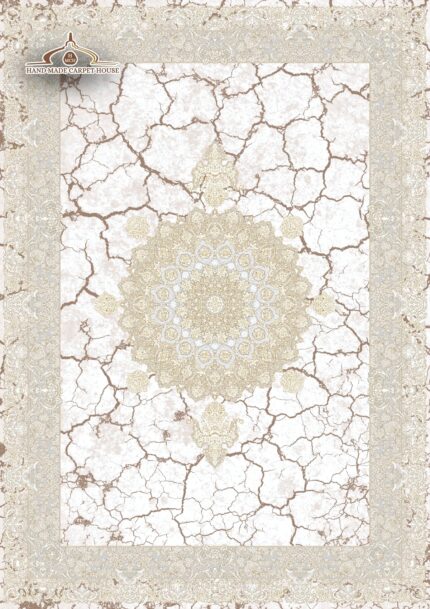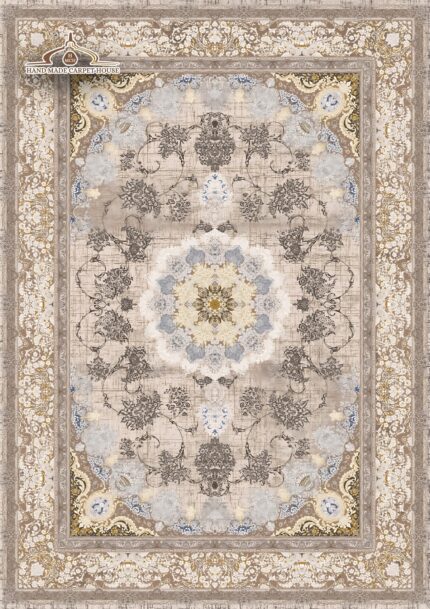Machine Made
Machine Made Carpets Dubai: Your Ultimate 2025 Guide to Stylish Flooring
Imagine stepping into a Dubai home, the warm desert light filtering through tall windows, and your feet sinking into a vibrant, intricately designed carpet that feels both luxurious and practical. Machine-made carpets have become a cornerstone of interior design in Dubai, blending affordability, durability, and style to suit the city’s diverse residents—locals, expatriates, and global professionals. These carpets, crafted with precision by automated looms, offer an accessible way to elevate homes, offices, and public spaces without the labor-intensive cost of handmade alternatives. But what makes machine-made carpets so vital in Dubai? And how can they transform your space?
Why are these carpets so popular in Dubai? The city’s fast-paced growth, diverse population, and extreme climate demand flooring that’s versatile, low-maintenance, and visually striking. Machine-made carpets meet these needs, resisting humidity, sand, and heavy foot traffic while offering endless design possibilities. This guide will walk you through their benefits, types, and applications, ensuring you understand why they’re a staple in Dubai’s homes and businesses. Let’s unravel the story of these remarkable floor coverings and discover how they can elevate your space.
What Are Machine-Made Carpets?
Machine-made carpets are textiles produced using automated looms, a process that combines advanced technology with artistic design to create durable, affordable floor coverings. Unlike handmade carpets, which rely on skilled artisans knotting each thread, machine-made carpets are crafted by power-driven looms that weave fibers with precision and speed. This automation allows for consistent patterns, uniform textures, and large-scale production, making them widely accessible for residential and commercial use in Dubai.
The manufacturing process begins with selecting fibers, which can be natural (wool, silk, cotton) or synthetic (polypropylene, nylon, polyester). These fibers are dyed in vibrant or subtle hues, depending on the design, and fed into looms like Wilton or Axminster, which are programmed with computer-aided design (CAD) software to create intricate patterns. The looms weave the fibers into a backing material, often jute or synthetic mesh, to ensure stability. Finishing steps, such as shearing for smoothness or binding edges, complete the carpet. This process, which can produce a carpet in hours rather than months, contrasts sharply with the weeks or years required for handmade versions.
Machine-made carpets offer several advantages: they’re cost-effective, consistent in quality, and available in a vast array of designs, from traditional Persian motifs to modern geometric abstracts. However, they may lack the unique imperfections of handmade carpets, which some view as a hallmark of authenticity. Environmentally, synthetic fibers raise concerns about sustainability, though advances in recyclable materials are addressing this. In Dubai, machine-made carpets are prized for their ability to mimic high-end designs while withstanding the city’s demanding conditions—think humid summers, sandy breezes, and heavy foot traffic in bustling households or offices.
The versatility of machine-made carpets lies in their adaptability. They can be low-pile for easy cleaning or high-pile for plush comfort. They come in various shapes—rectangular, round, or custom-cut—and sizes, from small accent rugs to wall-to-wall installations. In Dubai, where interiors range from opulent villas to minimalist apartments, these carpets cater to diverse tastes, offering something for every aesthetic and functional need. Understanding their construction is key to appreciating their role in the city’s design landscape.
Benefits of Machine-Made Carpets in Dubai
Machine-made carpets are a natural fit for Dubai’s dynamic lifestyle, offering a blend of practicality and beauty that resonates with the city’s residents. One of their standout benefits is affordability. Because they’re produced quickly and in large quantities, they’re accessible to a wide range of budgets, allowing homeowners and businesses to achieve stylish interiors without the investment required for handmade alternatives. This is particularly appealing in Dubai, where rapid urban growth and a transient expat population demand cost-effective furnishing solutions.
Durability is another key advantage. Machine-made carpets, especially those made with synthetic fibers like nylon or polypropylene, are engineered to withstand heavy foot traffic, making them ideal for Dubai’s busy households, offices, and public spaces. These fibers resist wear, fading, and staining, ensuring the carpet remains vibrant even in high-use areas like living rooms or hotel lobbies. Natural fiber options, such as wool, offer durability with a softer, more luxurious feel, though they require more care.
Maintenance is a breeze, which is crucial in Dubai’s sandy, humid environment. Many machine-made carpets feature stain-resistant and waterproof properties, allowing spills to be cleaned with minimal effort. Regular vacuuming and occasional spot cleaning keep them looking fresh, a boon for families or businesses with limited time for upkeep. Some carpets are even designed to trap dust and sand, preventing them from spreading through the home—a practical feature for Dubai’s desert climate.
Noise reduction is a lesser-known but significant benefit. In Dubai’s high-rise apartments and open-plan offices, sound can echo off hard surfaces like marble or glass. Machine-made carpets absorb noise, creating quieter, more comfortable spaces. This is especially valuable in commercial settings, where a serene environment enhances productivity, or in homes where families seek calm amidst the city’s hustle.
Eco-friendly options are gaining traction, addressing environmental concerns. Some machine-made carpets use recyclable synthetic fibers or sustainable natural materials like jute or sisal, reducing their ecological footprint. These carpets align with Dubai’s growing emphasis on green building practices, appealing to environmentally conscious residents. Additionally, their resistance to humidity and heat makes them perfect for Dubai’s climate, preventing mold or warping that can plague other flooring types.
Customization is a major draw. Machine-made carpets can be tailored in color, pattern, and size to suit specific spaces, whether it’s a bespoke rug for a villa or modular tiles for an office. This flexibility ensures they meet Dubai’s diverse design needs, from traditional Emirati aesthetics to cutting-edge global trends. In a city where individuality and style are paramount, these carpets offer endless possibilities to create unique, inviting interiors.
Types of Machine-Made Carpets in Dubai
Machine-made carpets come in a dizzying array of types, each suited to different tastes and functions in Dubai’s eclectic interiors. Understanding these types—by material, style, pile, shape, and application—helps you choose the perfect carpet for your space.
By Material
- Wool: Prized for its softness and durability, wool offers a luxurious feel but requires careful maintenance to avoid staining. It’s ideal for low-traffic areas like bedrooms.
- Synthetic Fibers (Polypropylene, Nylon, Polyester): These are the workhorses of machine-made carpets, offering affordability, stain resistance, and durability. Polypropylene mimics wool’s look at a fraction of the cost, while nylon excels in high-traffic areas. Polyester adds vibrant color retention.
- Silk-Like Fibers: Some synthetics are engineered to mimic silk’s sheen, creating a high-end look for formal spaces like dining rooms.
- Natural Alternatives (Jute, Sisal): These eco-friendly options are durable and textured, perfect for casual or sustainable interiors, though they’re less soft.
By Style
- Traditional/Persian: These mimic handmade designs with intricate floral or geometric patterns, resonating with Dubai’s cultural heritage. They suit formal spaces like majlis (sitting rooms).
- Modern/Minimalist: Clean lines, solid colors, or subtle patterns fit Dubai’s sleek apartments and offices, aligning with global design trends.
- Abstract/Geometric: Bold shapes and colors appeal to younger residents or creative spaces, adding a contemporary flair.
- Transitional: Blending traditional and modern, these versatile designs work in diverse Dubai homes, from villas to lofts.
By Pile
- Low-Pile: Thin and tightly woven, low-pile carpets are easy to clean and durable, ideal for offices, hallways, or homes with pets and kids.
- High-Pile/Shaggy: Plush and cozy, these are perfect for bedrooms or living rooms, offering comfort underfoot but requiring more maintenance.
- Cut-and-Loop: Combining cut fibers (soft) and loops (durable), these create textured patterns for visual interest.
By Shape and Size
- Rectangular: The most common, suiting most rooms, from small accent rugs to large area rugs.
- Round: Ideal for creating focal points, like under a dining table or in a cozy nook.
- Runners: Long and narrow, perfect for hallways or staircases.
- Custom/Wall-to-Wall: Tailored to fit unique spaces, common in Dubai’s luxury villas or commercial installations.
By Application
- Residential: From bedrooms to living rooms, these carpets add warmth and style, with high-pile options for comfort or low-pile for practicality.
- Commercial: Low-pile or modular carpets suit offices, hotels, and retail spaces, designed for durability and easy replacement.
- Specialty: Carpets for prayer rooms or event spaces often feature traditional designs or temporary, roll-out functionality.
In Dubai, the choice of carpet type depends on the space’s function and aesthetic. A modern Downtown apartment might favor a minimalist, low-pile synthetic rug, while a traditional Emirates Hills villa could embrace a Persian-style wool carpet. Commercial spaces, like malls or offices, often opt for modular tiles that balance durability and design. This diversity ensures machine-made carpets meet every need in Dubai’s multifaceted design landscape.
Top Considerations for Sourcing Machine-Made Carpets in Dubai
Sourcing machine-made carpets in Dubai requires careful consideration to ensure the right fit for your space. The city’s vibrant market, from bustling souks to sleek showrooms, offers endless options, but navigating it demands a strategic approach. Here are the key factors to consider when sourcing these carpets.
Reputation and Expertise
Seek suppliers with a strong track record in flooring. Look for those who specialize in machine-made carpets, as they’ll have in-depth knowledge of materials, designs, and applications. Visiting showrooms allows you to assess quality firsthand, while online reviews provide insights into reliability. In Dubai, where trust is paramount, choosing established vendors ensures authenticity and quality.
Design and Customization Options
Dubai’s interiors are as varied as its residents, so flexibility in design is crucial. Suppliers should offer a range of styles—traditional, modern, or transitional—and customization options like color, pattern, or size adjustments. Some provide bespoke services, allowing you to create carpets tailored to your space, whether it’s a unique shape for a villa or a branded design for an office. This ensures your carpet aligns with your vision.
Material Quality
The material affects durability, comfort, and maintenance. Synthetic fibers like nylon or polypropylene are budget-friendly and resilient, ideal for high-traffic areas. Wool offers luxury but needs care, while eco-friendly options like jute appeal to sustainable buyers. Ask suppliers about fiber origins, weave techniques, and performance features like stain resistance or UV protection, especially important in Dubai’s sunny climate.
Sampling and Trials
Before committing, request samples to test a carpet’s texture, color, and durability in your space. Some suppliers offer home trials, letting you see how a carpet looks under your lighting or with your furniture. This is particularly useful in Dubai, where bold designs can look different in natural vs. artificial light. Trials help you avoid costly mistakes and ensure satisfaction.
Installation Services
Professional installation is critical for a seamless fit, especially for wall-to-wall or custom carpets. Check if suppliers provide measuring, fitting, and aftercare services. In Dubai’s high-rise apartments or sprawling villas, precise installation prevents wrinkles or gaps, enhancing longevity. Ask about timelines and whether underlays are included to boost comfort and noise reduction.
Sustainability and Certifications
With Dubai’s push for green living, consider suppliers offering eco-friendly carpets made from recyclable or natural fibers. Look for certifications ensuring low volatile organic compounds (VOCs) or sustainable production. These carpets support health and align with the city’s environmental goals, such as those in green building standards.
After-Sales Support
Post-purchase support, like maintenance advice or repair services, is a must. Suppliers should guide you on cleaning techniques or connect you with professionals for repairs. In Dubai’s sandy environment, carpets need regular care, so choose vendors who offer comprehensive support to extend your carpet’s life.
Cultural and Local Relevance
Dubai’s design scene blends global and local influences. Suppliers familiar with Emirati aesthetics—such as Islamic geometric patterns or traditional colors—can offer carpets that resonate with cultural heritage. Equally, they should cater to expats seeking international styles. This balance ensures your carpet feels at home in Dubai’s cosmopolitan landscape.
Sourcing in Dubai means exploring both traditional markets, like those in Deira, and modern showrooms in design districts. Take time to compare options, ask questions, and test samples. By prioritizing quality, customization, and support, you’ll find a machine-made carpet that enhances your space while meeting practical needs.
Customization of Machine-Made Carpets
Customization is one of the most exciting aspects of machine-made carpets, allowing Dubai residents to create floor coverings that perfectly match their spaces. Unlike handmade carpets, which are limited by artisanal techniques, machine-made carpets leverage advanced technology to offer near-endless possibilities in design, size, and functionality. This flexibility is a game-changer in a city where individuality and bespoke interiors are celebrated.
The customization process begins with a consultation, where you articulate your vision—perhaps a rug that complements your villa’s color scheme or a carpet reflecting your office’s brand identity. Designers use CAD software to create digital mockups, letting you visualize patterns, from intricate Persian motifs to sleek modern grids. You can choose colors from vast palettes, ensuring the carpet harmonizes with your decor. Some platforms even offer 3D renderings, showing how the carpet will look in your space.
Size and shape are fully customizable. Machine-made carpets can be cut to fit unusual layouts, like a curved staircase or an irregularly shaped lounge. Options include area rugs, runners, or wall-to-wall installations, tailored to your room’s dimensions. In Dubai, where apartments and villas vary widely in size, this ensures a perfect fit, enhancing both aesthetics and functionality.
Material selection is another key step. You might opt for durable nylon for a high-traffic office or plush wool for a cozy bedroom. Eco-friendly choices, like recyclable synthetics or natural jute, cater to sustainable preferences. Each material offers unique benefits—synthetics for stain resistance, wool for luxury, jute for texture—allowing you to prioritize what matters most.
The production process is swift, thanks to automated looms that translate digital designs into reality with precision. Weaving, dyeing, and finishing happen in days, not weeks, making customization accessible even for time-sensitive projects. Quality checks ensure the carpet meets durability and aesthetic standards, with features like UV resistance or anti-slip backings added as needed.
Customization benefits Dubai’s diverse residents. For traditional households, bespoke carpets can incorporate Islamic patterns or family crests, honoring heritage. Expatriates might choose designs reflecting their home countries, creating a sense of familiarity. Businesses can embed logos or brand colors, enhancing corporate identity in offices or retail spaces. The ability to tailor every detail makes machine-made carpets a versatile choice.
Considerations include balancing creativity with practicality. Bold patterns may overwhelm small spaces, while light colors show stains in high-traffic areas. Work with designers to ensure your custom carpet suits both your aesthetic and lifestyle. In Dubai, where interiors are a statement of personality, customized machine-made carpets offer a unique way to express yourself while meeting the city’s practical demands.
How to Choose the Right Machine-Made Carpet in Dubai
Choosing a machine-made carpet in Dubai is both exciting and daunting, given the sheer variety available. The right carpet enhances your space’s beauty, comfort, and functionality, but making the best choice requires careful consideration. Here’s a comprehensive guide to navigating the process, tailored to Dubai’s unique needs.
Step 1: Assess Your Space
Start by evaluating the room’s purpose and traffic level. A high-traffic area like a living room or office needs a durable, low-pile carpet, preferably synthetic for easy cleaning. A bedroom or guest room can handle a plush, high-pile wool carpet for comfort. Measure the space to determine size—area rugs should leave a border around furniture, while wall-to-wall carpets require precise dimensions. In Dubai’s apartments, where space is often compact, round or runner rugs can maximize visual impact without overwhelming.
Step 2: Define Your Budget
Machine-made carpets vary widely in cost, influenced by material, size, and customization. Synthetic fibers are budget-friendly and practical, while wool or silk-like options feel more luxurious. Set a budget that balances quality and affordability, keeping in mind that durable carpets save money long-term by resisting wear. In Dubai, where rentals are common, consider portable rugs for flexibility.
Step 3: Choose the Material
Material impacts durability, comfort, and maintenance:
- Synthetic (Nylon, Polypropylene, Polyester): Stain-resistant, durable, and affordable, ideal for families or offices. Polypropylene resists fading, perfect for sunny Dubai rooms.
- Wool: Soft and elegant but prone to staining, best for low-traffic areas.
- Jute/Sisal: Eco-friendly and textured, great for casual spaces but less soft.
- Blends: Combining fibers offers the best of both worlds, like wool’s luxury with nylon’s resilience.
Consider Dubai’s climate—humid summers and sandy breezes favor synthetics or jute, which resist mold and are easy to clean.
Step 4: Select the Pile
Pile height affects feel and maintenance:
- Low-Pile: Easy to clean, durable, suits high-traffic areas like hallways or commercial spaces.
- High-Pile/Shaggy: Cozy and luxurious, ideal for bedrooms but harder to maintain.
- Cut-and-Loop: Textured and stylish, balances comfort and durability.
In Dubai, low-pile carpets are popular for their practicality, especially in homes with kids or pets.
Step 5: Pick a Style
Your carpet should reflect your aesthetic and the room’s vibe:
- Traditional: Persian or Islamic patterns suit cultural or formal spaces, resonating with Dubai’s heritage.
- Modern: Clean lines and neutral tones fit sleek apartments or offices.
- Abstract: Bold, artistic designs add personality to creative spaces.
- Transitional: Blends classic and contemporary, versatile for diverse Dubai homes.
Consider how the carpet complements existing decor—bold patterns need neutral furniture, while solid colors pair with eclectic pieces.
Step 6: Test Samples
Request samples to see how colors and textures look in your space. Dubai’s natural light can alter hues, so test under both daylight and artificial lighting. Feel the carpet’s texture to ensure it meets your comfort needs, and check for features like stain resistance or anti-slip backings.
Step 7: Avoid Common Mistakes
- Ignoring Maintenance: Choose carpets that match your lifestyle—busy households need low-maintenance synthetics.
- Wrong Size: Oversized rugs overwhelm, while undersized ones look awkward. Follow design rules, like placing furniture partially on the rug.
- Overlooking Durability: In Dubai’s high-traffic environments, prioritize resilient materials.
- Neglecting Installation: Professional fitting prevents issues like curling edges, especially for wall-to-wall carpets.
Step 8: Consider Dubai-Specific Needs
- Climate: Opt for humidity-resistant materials to prevent mold.
- Expat Lifestyle: Portable rugs suit transient residents.
- Cultural Fit: Traditional designs honor local aesthetics in communal spaces.
- Commercial Use: Offices or hotels need durable, noise-reducing carpets.
By balancing aesthetics, practicality, and local context, you’ll choose a machine-made carpet that enhances your Dubai space for years to come. Create a checklist to stay organized, and don’t rush—taking time ensures a perfect match.
Installation and Maintenance of Machine Made Carpets
Installing and maintaining machine-made carpets in Dubai is crucial to their longevity and performance, especially given the city’s unique environmental challenges. Proper installation ensures a flawless fit, while regular maintenance keeps carpets looking vibrant and functional. Here’s a detailed look at both processes.
Installation
Installation varies by carpet type and space:
- Area Rugs: These are simply laid out, often with an underlay to prevent slipping and add cushioning. Ensure the rug is centered, with furniture placed according to design principles (e.g., front legs on the rug).
- Wall-to-Wall Carpets: These require professional installation for a seamless fit. The process involves measuring the room, cutting the carpet to size, securing it with adhesive or tack strips, and trimming edges. Underlays enhance comfort and soundproofing, vital in Dubai’s high-rises.
- Modular Tiles: Common in commercial spaces, tiles are laid with adhesive dots, allowing easy replacement of damaged sections.
In Dubai, professional installers are recommended, especially for large or custom carpets. They ensure precise fitting, preventing wrinkles or gaps, and can complete most jobs in a few hours. For DIY enthusiasts, area rugs are manageable, but wall-to-wall installations demand expertise to avoid costly errors. Always check that the subfloor is clean and level to prevent uneven wear.
Maintenance
Maintaining machine-made carpets in Dubai requires strategies tailored to the city’s climate and lifestyle:
- Vacuuming: Vacuum weekly to remove dust and sand, which can abrade fibers. Use a suction-only setting for delicate piles to avoid damage. In high-traffic areas, vacuum more frequently.
- Spot Cleaning: Address spills immediately to prevent stains. Blot (don’t rub) with a clean cloth and mild detergent. For synthetic carpets, water-based cleaners work well; wool requires gentler solutions to avoid shrinkage.
- Deep Cleaning: Professionally clean carpets every 12-18 months to remove embedded dirt. Steam cleaning suits synthetics, while dry cleaning is better for wool or jute. In Dubai’s humid climate, ensure carpets dry fully to prevent mold.
- Stain Prevention: Many machine-made carpets have stain-resistant coatings, but adding protective sprays enhances longevity. For households with kids or pets, choose dark or patterned carpets to hide marks.
- Sand Management: Dubai’s desert environment means sand is a constant challenge. Place doormats at entrances and shake rugs regularly to minimize abrasion.
- Humidity Control: Use dehumidifiers in summer to prevent moisture buildup, which can damage natural fibers or encourage mold.
Longevity Tips
- Rotate Rugs: Rotate area rugs every 6 months to distribute wear evenly, especially in sunny rooms where UV rays can fade colors.
- Use Furniture Pads: Prevent dents by placing pads under heavy furniture legs.
- Avoid Direct Sunlight: Use curtains or UV-resistant coatings to protect carpets from fading, a common issue in Dubai’s intense sunlight.
- Eco-Friendly Care: Opt for low-VOC cleaners to maintain indoor air quality, aligning with Dubai’s health-conscious trends.
Regular maintenance can extend a machine-made carpet’s life to 15-20 years, even in high-traffic settings. In Dubai, where sand and humidity pose challenges, proactive care is essential. For example, a family in a Jumeirah villa might vacuum daily and deep-clean biannually to keep their wool carpet pristine, while an office in DIFC could rely on modular tiles for easy upkeep. By investing time in installation and maintenance, you ensure your carpet remains a stunning, functional part of your space.
Machine Made Carpets for Commercial Spaces
Machine-made carpets are a cornerstone of commercial interiors in Dubai, from corporate offices to luxury hotels and bustling retail spaces. Their durability, versatility, and aesthetic appeal make them ideal for environments where functionality and style must coexist. Here’s an in-depth look at their role in commercial settings and how they meet Dubai’s unique demands.
Benefits for Commercial Spaces
- Durability: Low-pile synthetic carpets withstand heavy foot traffic, resisting wear in busy areas like mall corridors or office lobbies. Their robust construction ensures they maintain appearance under constant use.
- Noise Reduction: In open-plan offices or high-rise hotels, carpets absorb sound, creating quieter, more professional environments. This is crucial in Dubai, where glass and marble interiors amplify noise.
- Branding Opportunities: Custom carpets can incorporate logos, brand colors, or patterns, reinforcing corporate identity. For example, a hotel might use a geometric carpet echoing its facade design.
- Cost-Effectiveness: Machine-made carpets offer high-quality aesthetics at a fraction of handmade costs, allowing businesses to furnish large spaces affordably.
- Easy Maintenance: Stain-resistant and easy-to-clean carpets minimize downtime in commercial settings, where appearance is critical.
Types of Commercial Carpets
- Low-Pile Carpets: Tightly woven and durable, these are ideal for offices or retail, handling foot traffic while maintaining a sleek look.
- Modular Tiles: Square tiles allow easy replacement of worn or stained sections, perfect for high-traffic areas like airports or convention centers. They also offer design flexibility, with mix-and-match patterns.
- Broadloom Carpets: Wall-to-wall installations create a cohesive look in hotels or theaters, often with custom patterns for elegance.
- Needle-Punch Carpets: Tough and budget-friendly, these suit utilitarian spaces like schools or community centers.
Applications in Dubai
- Offices: In DIFC or Business Bay, carpets create professional, comfortable workspaces. Low-pile tiles in neutral tones are popular, with custom designs for boardrooms.
- Hotels: Dubai’s luxury hotels use plush, patterned carpets in lobbies and suites, enhancing guest experiences. Modular tiles in banquet halls allow quick reconfiguration.
- Retail: Malls like Dubai Mall use durable carpets in boutiques or food courts, balancing style and practicality. Bold patterns draw attention, while stain resistance handles spills.
- Event Spaces: Temporary carpets, like roll-out rugs or tiles, suit exhibitions or weddings, offering elegance with easy setup.
- Educational Institutions: Schools and universities use hypoallergenic, durable carpets in classrooms, ensuring safety and comfort.
Dubai-Specific Considerations
- Climate: Humidity-resistant carpets prevent mold in air-conditioned commercial spaces, while UV-resistant fibers combat fading from large windows.
- Regulations: Fire safety is critical in Dubai’s high-rises. Choose carpets with flame-retardant treatments that meet local building codes.
- Cultural Sensitivity: In spaces hosting diverse clients, like hotels, carpets with Islamic or neutral patterns respect cultural norms while appealing broadly.
- Sustainability: Green certifications are increasingly important in commercial projects, aligning with Dubai’s eco-friendly initiatives.
Design Tips
- Balance Aesthetics and Function: A hotel lobby might use a bold, high-pile carpet for luxury, while an office opts for low-pile tiles for practicality.
- Incorporate Branding: Subtle logos or color schemes reinforce identity without overwhelming the space.
- Plan for Maintenance: Choose carpets with stain-resistant coatings and schedule regular cleaning to maintain professionalism.
- Consider Traffic Flow: High-traffic zones need durable, low-pile options, while private areas can handle softer textures.
In Dubai, where commercial spaces are showcases of innovation and luxury, machine-made carpets deliver both style and performance. For example, a Burj Al Arab suite might feature a custom, plush carpet with intricate patterns, while a co-working space in Dubai Marina uses modular tiles for flexibility. By selecting carpets that align with function, design, and local needs, businesses can create inviting, enduring interiors.
Cost Considerations for Machine-Made Carpets in Dubai
While this article avoids specific prices, understanding the factors that influence the cost of machine-made carpets in Dubai is essential for informed decision-making. These factors help you prioritize quality and functionality within your budget, ensuring you get the best value for your investment.
Material
The choice of fiber significantly impacts cost:
- Synthetic Fibers (Nylon, Polypropylene, Polyester): These are the most affordable, offering durability and stain resistance. Polypropylene is the least expensive, ideal for budget-conscious buyers, while nylon adds slight cost for extra resilience.
- Wool: More expensive due to its natural origin and luxurious feel, wool suits premium spaces but requires careful maintenance.
- Jute/Sisal: Eco-friendly and moderately priced, these offer texture but may cost more than basic synthetics due to sustainable sourcing.
- Blends: Combining fibers, like wool with nylon, balances cost and performance, offering mid-range options.
Size and Shape
Larger carpets require more material and labor, increasing costs. Custom shapes, like round or irregular cuts, add expense due to precise manufacturing. Wall-to-wall installations are pricier than area rugs, as they involve professional fitting and underlays. In Dubai, where spaces range from compact apartments to expansive villas, size is a major cost driver.
Customization
Bespoke carpets, tailored in color, pattern, or size, cost more than off-the-shelf options. The complexity of the design—simple solids vs. intricate motifs—affects production time and resources. Advanced features, like 3D textures or branded logos, further increase costs. However, customization ensures a perfect fit, adding long-term value.
Pile and Weave
- Low-Pile: Less material and simpler weaving make these more affordable, ideal for high-traffic areas.
- High-Pile/Shaggy: Thicker and plusher, these use more fiber, raising costs but adding comfort.
- Complex Weaves (Cut-and-Loop, Wilton): Intricate techniques increase production time, impacting cost.
Additional Features
- Stain Resistance: Coatings or treated fibers add cost but save on maintenance.
- Anti-Slip Backings: Essential for safety, these increase expenses slightly.
- UV Protection: Crucial in Dubai’s sunny climate, UV-resistant treatments add to the cost but prevent fading.
- Fire Retardancy: Mandatory in commercial spaces, this feature raises costs due to specialized materials.
Dubai-Specific Factors
- Climate: Humidity-resistant or UV-protected carpets cost more but are essential for longevity in Dubai’s environment.
- Expat Needs: Portable rugs, popular among transient residents, are often smaller and cheaper than permanent installations.
- Commercial Requirements: Fire safety, noise reduction, or modular designs add cost but meet regulatory and functional needs.
- Cultural Designs: Traditional patterns may require complex weaving, increasing costs but honoring local aesthetics.
To manage costs, prioritize features that match your needs. For a busy family home, a low-pile synthetic carpet offers value and durability. For a luxury villa, a customized wool carpet justifies higher costs for its elegance. Request samples to compare quality, and consider long-term savings from durable, low-maintenance options. In Dubai’s diverse market, balancing cost with quality ensures a carpet that enhances your space without breaking the bank.
Cultural Significance of Carpets
Carpets hold profound cultural significance in Dubai, weaving together the UAE’s Bedouin heritage, Islamic traditions, and modern cosmopolitan identity. Machine-made carpets, while a product of technology, play a vital role in preserving and reinterpreting this legacy, making them a cherished part of the city’s interiors.
Carpets in Emirati Culture
In traditional Emirati society, carpets were more than floor coverings—they were symbols of hospitality and community. Bedouin tribes used woven rugs to furnish tents, creating comfortable spaces for guests during gatherings. These carpets, often featuring geometric or tribal patterns, reflected the desert’s stark beauty and the weaver’s skill. In modern Dubai, machine-made carpets continue this tradition, offering affordable versions of traditional designs that grace majlis (sitting rooms), where families host visitors with warmth and generosity.
Islamic Influence
Carpets are integral to Islamic culture, particularly in prayer spaces. Prayer rugs, with their mihrab (niche) designs pointing toward Mecca, are essential for daily salah (prayers). Machine-made prayer rugs, widely available in Dubai, replicate hand-knotted patterns with precision, making them accessible to all. These rugs often feature intricate borders and muted colors, aligning with Islamic aesthetics that emphasize balance and harmony. In mosques across Dubai, from grand structures like Sheikh Zayed Grand Mosque to community spaces, machine-made carpets provide comfort and beauty for worshippers.
Dubai’s Souks and Markets
Dubai’s historic souks, like those in Deira or Bur Dubai, are a testament to the city’s carpet culture. These bustling markets once traded handwoven rugs from Persia, Turkey, and Central Asia, prized for their craftsmanship. Today, machine-made carpets dominate, offering similar patterns at a fraction of the cost. Shoppers can find rugs mimicking Persian Qashqai or Turkish Kilim designs, blending heritage with affordability. The souks remain a cultural hub, where bargaining for a carpet is as much about connection as commerce, reflecting Dubai’s trading roots.
Modern Interpretations
In contemporary Dubai, machine-made carpets reinterpret cultural motifs for modern interiors. Designers blend Islamic geometric patterns with minimalist or abstract elements, creating transitional rugs that suit both traditional majlis and sleek lofts. For example, a carpet might feature a star-shaped tessellation—a nod to Islamic art—rendered in bold, modern colors like navy or coral. This fusion reflects Dubai’s identity as a city that honors its past while embracing the future.
Eco-Friendly Machine-Made Carpets in Dubai
Sustainability is a growing priority in Dubai, and machine-made carpets are evolving to meet this demand, offering eco-friendly options that balance style, durability, and environmental responsibility. These carpets reduce ecological impact while enhancing indoor health, making them a smart choice for the city’s green-conscious residents.
Eco-Friendly Materials
- Recyclable Synthetics: Advanced polyesters and nylons are made from recycled plastics, like PET bottles, reducing waste. These fibers maintain durability and stain resistance, ideal for busy Dubai homes.
- Natural Fibers: Jute, sisal, and seagrass are renewable, biodegradable materials with low environmental impact. They offer textured, organic aesthetics, perfect for casual or coastal-inspired interiors.
- Organic Wool: Sourced from sustainably raised sheep, organic wool avoids harmful chemicals, offering a luxurious, eco-conscious option.
Sustainable Manufacturing
Eco-friendly carpets prioritize low-impact production:
- Water Conservation: Closed-loop dyeing systems recycle water, minimizing waste.
- Energy Efficiency: Modern looms use less electricity, reducing carbon footprints.
- Non-Toxic Dyes: Low-VOC or plant-based dyes improve indoor air quality, crucial in Dubai’s air-conditioned spaces.
- Recycled Backings: Backings made from recycled rubber or jute reduce reliance on virgin materials.
Certifications
Look for certifications to ensure sustainability:
- Green Label Plus: Ensures low VOC emissions, protecting indoor health.
- Cradle to Cradle: Certifies products designed for recyclability and minimal environmental impact.
- Global Recycled Standard: Verifies the use of recycled materials.
- LEED Compliance: Aligns with green building standards, relevant for Dubai’s eco-friendly projects.
Benefits in Dubai
- Health: Low-VOC carpets reduce allergens and pollutants, benefiting families, especially those with children or respiratory issues.
- Climate Suitability: Natural fibers like jute resist humidity, preventing mold in Dubai’s summers.
- Aesthetic Appeal: Eco-friendly carpets offer earthy tones and textures, complementing Dubai’s trend toward organic, minimalist designs.
- Regulatory Alignment: Sustainable carpets support Dubai’s green building codes, enhancing project approvals in commercial or residential developments.
Applications
- Residential: Jute rugs add warmth to villas, while recycled polyester carpets suit apartments with kids or pets.
- Commercial: Offices and hotels use certified carpets to meet sustainability goals, creating healthy work environments.
- Public Spaces: Schools or community centers benefit from durable, eco-friendly carpets that prioritize safety and low maintenance.
Choosing Eco-Friendly Carpets
- Verify Certifications: Ensure suppliers provide documentation for green claims.
- Prioritize Local Sourcing: Carpets produced or finished in the UAE reduce transport emissions.
- Balance Cost and Impact: Recycled synthetics are often more affordable than organic wool, offering eco-benefits on a budget.
- Consider Longevity: Durable eco-carpets reduce replacement frequency, saving resources.
In Dubai, where sustainability is integral to urban planning—think Masdar City or Dubai Sustainable City—eco-friendly machine-made carpets are more than a trend; they’re a necessity. They allow residents to create stylish, healthy spaces while supporting the city’s vision for a greener future. For example, a Jumeirah family might choose a sisal rug for its natural charm, while a DIFC office opts for recycled nylon tiles to meet LEED standards. Embracing these carpets is a step toward sustainable living without sacrificing quality or beauty.
Health and Safety Features of Machine-Made Carpets
Machine-made carpets in Dubai are designed with health and safety features that address the city’s unique lifestyle and regulatory requirements. These features ensure carpets are practical, safe, and comfortable, enhancing their appeal for homes, offices, and public spaces.
Anti-Slip Properties
Slipping is a concern in busy households or commercial spaces, especially on Dubai’s polished floors. Machine-made carpets often include:
- Non-Slip Backings: Rubber or latex coatings grip surfaces, preventing movement. These are standard in area rugs and modular tiles.
- Heavy Weaves: Dense carpets stay in place naturally, reducing the need for additional adhesives.
- Underlays: Anti-slip pads add stability and cushioning, ideal for high-traffic areas like hotel lobbies.
In homes with children or elderly residents, anti-slip carpets prevent accidents, while offices benefit from safer walkways.
Hypoallergenic Features
Allergies are a concern in Dubai’s dusty, air-conditioned environments. Hypoallergenic carpets minimize health risks:
- Low-Allergen Fibers: Synthetics like nylon or polypropylene don’t trap allergens like dust mites, unlike some natural fibers.
- Tight Weaves: Low-pile carpets reduce dust accumulation, making them easier to clean.
- Anti-Microbial Treatments: Some carpets are treated to inhibit bacteria or mold, crucial in humid summers.
These features benefit families, schools, or healthcare facilities, ensuring cleaner indoor air.
Fire Resistance
Fire safety is critical in Dubai’s high-rises and commercial buildings, governed by strict regulations. Machine-made carpets offer:
- Flame-Retardant Fibers: Treated synthetics or wool naturally resist flames, slowing fire spread.
- Certifications: Carpets meeting standards like NFPA 253 or ASTM E648 ensure compliance with UAE fire codes.
- Low Smoke Emission: Advanced treatments minimize toxic fumes, enhancing safety during emergencies.
Hotels, offices, and malls prioritize fire-resistant carpets to protect occupants and meet legal requirements.
Low VOC Emissions
Volatile organic compounds (VOCs) from adhesives or dyes can degrade indoor air quality. Health-focused carpets feature:
- Low-VOC Materials: Certified carpets use non-toxic dyes and backings, reducing emissions.
- Green Certifications: Standards like Green Label Plus guarantee minimal off-gassing.
- Ventilation-Friendly Designs: Tight weaves allow better airflow, preventing trapped pollutants.
In Dubai, where air conditioning is constant, low-VOC carpets are essential for healthy interiors, especially in homes or schools.
Durability for Safety
Durable carpets reduce tripping hazards:
- Edge Binding: Prevents fraying, ensuring smooth transitions.
- Flat Weaves: Low-pile carpets minimize uneven surfaces, ideal for wheelchairs or strollers.
- Secure Installation: Professional fitting prevents curling or lifting, common in wall-to-wall carpets.
Dubai-Specific Considerations
- Climate: Humidity-resistant carpets prevent mold, a health risk in summer.
- Regulations: Commercial spaces must comply with fire and safety codes, making certified carpets a must.
- Lifestyle: Expat families or busy offices need carpets that handle spills, sand, and traffic without compromising safety.
For example, a Dubai school might choose hypoallergenic, anti-slip carpets to protect students, while a Bur Dubai hotel uses fire-resistant, low-VOC carpets to meet regulations and guest expectations. By prioritizing these features, machine-made carpets ensure safety and comfort, making them a trusted choice in Dubai’s diverse settings.
Machine-Made Carpets for Luxury Villas in Dubai
Dubai’s luxury villas, from Emirates Hills to Palm Jumeirah, are showcases of opulence, and machine-made carpets play a pivotal role in their interiors. These carpets offer high-end aesthetics, customization, and practicality, making them ideal for the city’s most exclusive residences.
Why Machine-Made Carpets?
- Affordable Elegance: They mimic the intricate designs of handmade carpets, offering luxury without the exorbitant cost.
- Customization: Tailored sizes, patterns, and colors ensure carpets fit expansive or uniquely shaped villa spaces.
- Durability: High-quality synthetics or wool withstand the wear of large households or frequent entertaining, common in villas.
- Maintenance: Stain-resistant options handle spills from parties or kids, maintaining pristine appearances.
Design Trends
- Bold Patterns: Persian or Islamic-inspired designs add grandeur to formal living areas, resonating with Dubai’s heritage.
- Silk-Like Textures: Synthetic fibers mimic silk’s sheen, creating a luxurious feel in dining rooms or master suites.
- Neutral Palettes: Beiges, grays, or creams complement villas’ marble and glass, creating serene, sophisticated spaces.
- Statement Rugs: Oversized carpets with geometric or abstract patterns anchor open-plan areas, defining zones in vast layouts.
Applications
- Living Areas: Large, plush carpets create inviting spaces for family gatherings, often layered with smaller rugs for texture.
- Dining Rooms: Custom, round carpets under tables add elegance, with stain-resistant fibers for easy cleanup.
- Bedrooms: High-pile wool carpets offer comfort, enhancing the sanctuary-like feel of villa suites.
- Majlis: Traditional sitting rooms use carpets with cultural patterns, honoring Emirati hospitality.
- Outdoor Areas: UV-resistant synthetic carpets suit covered patios, blending indoor-outdoor living.
Customization
Villas often have unique layouts—curved walls, sunken lounges, or sprawling terraces. Machine-made carpets can be tailored to fit, with bespoke patterns reflecting the homeowner’s style. For example, a villa might feature a carpet with a star-shaped tessellation, echoing Islamic art, or a minimalist grid for a contemporary vibe. CAD software ensures precision, while fast production meets tight renovation timelines.
Dubai-Specific Needs
- Climate: Humidity-resistant carpets prevent mold in air-conditioned villas, while UV protection combats fading from large windows.
- Lifestyle: Villas host frequent events, requiring durable, easy-clean carpets.
- Cultural Fit: Traditional designs honor local aesthetics, while global influences cater to expat owners.
- Sustainability: Eco-friendly carpets align with Dubai’s green luxury trends, appealing to environmentally conscious residents.
For instance, a Palm Jumeirah villa might feature a custom, silk-like carpet in its grand foyer, setting a luxurious tone, while a high-pile wool rug in the master bedroom adds warmth. Machine-made carpets allow villa owners to achieve bespoke elegance, making them a staple in Dubai’s high-end residential design.
Machine-Made Carpets for Expat Homes in Dubai
Dubai’s expatriate community, comprising over 80% of the population, shapes the city’s design landscape, and machine-made carpets are a popular choice for their homes. These carpets meet the unique needs of transient residents, offering affordability, portability, and style.
Why Machine-Made Carpets?
- Affordability: Expatriates, often on fixed budgets, appreciate cost-effective carpets that don’t compromise on quality.
- Portability: Area rugs or smaller carpets are easy to transport when relocating, a common reality for expats.
- Durability: Synthetic carpets handle the wear of temporary homes, resisting stains from kids, pets, or parties.
- Diversity: A wide range of designs caters to global tastes, from Scandinavian minimalism to Indian vibrancy.
Design Preferences
- Global Styles: Expats choose carpets reflecting their origins—British expats might prefer neutral, modern rugs, while South Asians opt for colorful, patterned designs.
- Minimalist Trends: Sleek, low-pile carpets suit furnished apartments in areas like Dubai Marina, aligning with transient lifestyles.
- Eclectic Mixes: Some expats layer rugs with bohemian or abstract patterns, creating personalized, cozy spaces.
- Neutral Bases: Beiges or grays are popular for their versatility, complementing rented furniture.
Applications
- Apartments: Small area rugs define living or dining zones in compact spaces, adding warmth to tiled floors.
- Villas: Larger rugs anchor open-plan areas, offering comfort for families in Jumeirah or Arabian Ranches.
- Bedrooms: High-pile rugs add coziness, especially for expats seeking familiarity in new homes.
- Temporary Spaces: Roll-out rugs suit short-term rentals, easy to pack when moving.
Dubai-Specific Needs
- Climate: Humidity-resistant synthetics prevent mold, while easy-clean fibers handle sand and spills.
- Rental Constraints: Portable rugs avoid permanent installations, respecting lease terms.
- Cultural Sensitivity: Neutral or transitional designs blend with Dubai’s cosmopolitan vibe, appealing to diverse neighbors.
- Maintenance: Low-maintenance carpets suit busy expat schedules, with stain resistance for frequent entertaining.
Practical Tips
- Choose Lightweight Rugs: Easier to transport when relocating within or outside Dubai.
- Opt for Versatility: Neutral or transitional designs work in multiple homes, maximizing value.
- Test Durability: Request samples to ensure carpets withstand kids, pets, or frequent moves.
- Prioritize Cleaning: Stain-resistant carpets simplify upkeep in sandy, dusty environments.
Machine-Made Carpet Repairs in Dubai
Even the most durable machine-made carpets in Dubai may need repairs due to wear, spills, or accidents. Understanding repair options ensures your carpet remains functional and beautiful, extending its lifespan in the city’s demanding environment.
Common Issues
- Stains: Spills from food, drinks, or ink can leave marks, especially on light-colored carpets.
- Tears or Cuts: Heavy furniture or sharp objects may tear fibers, particularly in high-traffic areas.
- Fraying Edges: Area rugs may fray at borders due to foot traffic or improper binding.
- Burns: Cigarettes or hot objects can scorch synthetic or wool carpets.
- Flattening: High-pile carpets may flatten under furniture, affecting texture.
Repair Techniques
- Stain Removal: Professionals use specialized cleaners to lift stains. Synthetics respond well to water-based solutions, while wool requires gentler, dry-cleaning methods. DIY spot cleaning with mild detergent can address small stains if done promptly.
- Patching: Tears or burns are repaired by cutting out damaged areas and sewing in matching patches. Skilled technicians ensure seamless blends, especially for patterned carpets.
- Reweaving: For frayed edges or small tears, fibers are rewoven to restore integrity. This is common for wool or high-quality synthetics.
- Restretching: Wall-to-wall carpets that wrinkle or bubble are restretched and resecured, restoring a smooth surface.
- Pile Restoration: Flattened high-pile carpets can be steamed or brushed to revive texture, though severe flattening may be permanent.
DIY vs. Professional Repairs
- DIY: Small stains or minor fraying can be handled with household cleaners or sewing kits. For example, blotting a coffee spill with vinegar and water can work on synthetics. However, improper techniques risk worsening damage, especially on wool or custom carpets.
- Professional: Experts have tools and expertise for complex repairs like patching or restretching. In Dubai, where carpets are often high-value or custom, professionals ensure quality, preserving aesthetics and function.
Dubai-Specific Considerations
- Climate: Humidity can complicate repairs, as damp carpets risk mold. Ensure quick drying during stain removal or patching.
- Sand and Dust: Abrasive sand can embed in carpets, worsening tears. Regular vacuuming prevents damage that requires repairs.
- High Traffic: Busy households or offices need durable repairs, like reinforced patches, to withstand constant use.
- Cultural Designs: Traditional patterns require skilled matching to maintain authenticity during repairs.
Prevention Tips
- Use Doormats: Reduce sand and dirt, minimizing abrasion.
- Apply Protectants: Stain-resistant sprays prevent permanent marks.
- Rotate Rugs: Distribute wear evenly, reducing the need for repairs.
- Professional Cleaning: Regular deep cleaning prevents dirt buildup that leads to damage.
Machine Made Carpets for Events and Exhibitions
Dubai’s vibrant event scene—think Dubai Expo, weddings, or trade shows—relies on machine-made carpets to create stunning, functional spaces. These carpets offer versatility, quick setup, and aesthetic appeal, making them ideal for temporary flooring needs.
Why Machine Made Carpets?
- Quick Installation: Roll-out rugs or modular tiles can be laid in hours, meeting tight event schedules.
- Durability: Synthetic carpets withstand heavy foot traffic, from exhibition visitors to wedding guests.
- Customizability: Carpets can be tailored with event themes, logos, or colors, enhancing branding.
- Reusability: Many carpets are designed for multiple uses, stored easily between events.
- Cost-Effectiveness: Affordable compared to handmade options, they suit one-off or recurring events.
Types for Events
- Roll-Out Rugs: Large, continuous carpets cover expansive areas, like trade show booths or wedding venues, offering elegance.
- Modular Tiles: Square tiles allow flexible layouts, ideal for exhibitions where booths vary in size. Damaged tiles are easily replaced.
- Needle-Punch Carpets: Budget-friendly and tough, these suit high-traffic events like product launches.
- Custom Prints: Carpets with logos or patterns, like a company’s branding, elevate corporate events.
Applications in Dubai
- Trade Shows: Events like GITEX or Arabian Travel Market use modular carpets to define booths, with durable, low-pile options for heavy traffic.
- Weddings: Luxury venues like Burj Al Arab use plush, patterned carpets for ceremonies, often in traditional or gold-toned designs.
- Cultural Festivals: During Eid or National Day, temporary carpets transform public spaces, reflecting Emirati heritage.
- Corporate Events: Gala dinners or product launches use branded carpets to reinforce identity, often in sleek, modern styles.
- Fashion Shows: Runways feature bold, solid-color carpets, creating dramatic backdrops.
Dubai-Specific Considerations
- Climate: Indoor events need humidity-resistant carpets to prevent mold, while outdoor setups require UV protection.
- Cultural Sensitivity: Traditional patterns suit local events, while neutral designs cater to international audiences.
- Regulations: Fire-resistant carpets are mandatory in public venues, meeting Dubai’s safety codes.
- Sustainability: Eco-friendly carpets align with Dubai’s green event initiatives, reducing waste.
Practical Tips
- Plan Layouts: Measure spaces accurately to ensure carpets fit without gaps or overlaps.
- Choose Durable Fibers: Synthetics like nylon handle high heels or equipment without fraying.
- Opt for Easy Cleanup: Stain-resistant carpets simplify post-event maintenance.
- Store Properly: Roll or stack carpets in dry, cool spaces to preserve for future use.
For example, a Dubai Expo pavilion might use modular tiles with geometric patterns, while a beachfront wedding features a roll-out, UV-resistant rug. Machine-made carpets bring events to life, offering practicality and style that elevate Dubai’s world-class gatherings.
Machine-Made Carpets in Dubai’s Interior Design Trends
Machine-made carpets are integral to Dubai’s interior design trends, reflecting the city’s fusion of luxury, innovation, and cultural heritage. As a global design hub, Dubai’s trends influence how carpets are chosen and styled, creating stunning, functional spaces.
Key Trends
- Minimalism: Sleek, low-pile carpets in neutral tones like gray or beige dominate modern apartments, complementing glass and metal furnishings. These create clean, airy vibes in areas like Dubai Marina.
- Bohemian Eclecticism: Layered rugs with abstract or tribal patterns add warmth and personality, popular in expat villas or creative lofts. Earthy tones and textures like jute shine here.
- Luxury Opulence: Bold, silk-like carpets with intricate patterns grace villa living rooms, echoing Dubai’s love for grandeur. Gold, navy, or emerald hues add drama.
- Sustainable Design: Eco-friendly carpets in natural fibers or recycled synthetics align with Dubai’s green initiatives, seen in eco-conscious homes or LEED-certified offices.
- Cultural Fusion: Carpets blending Islamic geometric patterns with modern colors, like a star tessellation in coral, bridge tradition and innovation, ideal for majlis or cultural spaces.
Styling Tips
- Anchor Spaces: In open-plan villas, large carpets define zones, like a dining area under a round rug or a living room with a bold geometric design.
- Layer for Texture: Stack a small, patterned rug over a larger neutral one for a bohemian or eclectic look, adding depth to minimalist rooms.
- Complement Furniture: Pair bold carpets with neutral sofas or vice versa to balance the room. For example, a vibrant rug pops against white leather in a Downtown loft.
- Highlight Lighting: Carpets with sheen, like silk-like synthetics, reflect Dubai’s dramatic lighting, enhancing chandeliers or LED strips.
- Incorporate Cultural Elements: Traditional patterns in modern colors honor Emirati heritage while fitting contemporary homes.
Dubai-Specific Contexts
- Villas: Spacious layouts favor oversized or custom carpets, creating cohesive, luxurious interiors. High-pile wool rugs add comfort in private areas, while low-pile synthetics handle public spaces.
- Apartments: Compact spaces benefit from round or runner rugs, maximizing visual impact without clutter. Neutral or minimalist designs suit rented units.
- Offices: Modular tiles in sleek patterns create professional, noise-reducing environments, aligning with DIFC’s corporate aesthetic.
- Cultural Spaces: Mosques or heritage sites use traditional carpets, often with prayer-friendly designs, to respect local values.
Designer Insights
Local designers emphasize versatility and context:
- Balance Boldness: A vibrant carpet needs neutral walls to avoid overwhelming, especially in smaller Dubai apartments.
- Consider Functionality: High-traffic areas require durable, low-maintenance carpets, even in luxury settings.
- Reflect Lifestyle: Expat homes might lean global, while local families prioritize cultural motifs.
- Embrace Trends Sparingly: Timeless designs ensure carpets remain relevant beyond 2025’s trends.
For example, a Jumeirah villa might feature a layered, bohemian rug setup in its living room, while a Business Bay office uses minimalist tiles for a professional edge. Machine-made carpets’ versatility makes them a cornerstone of Dubai’s design trends, allowing residents to craft spaces that are both stylish and reflective of the city’s dynamic identity.
Conclusion
Machine-made carpets are a cornerstone of Dubai’s interiors, offering affordability, durability, and style. From their intricate manufacturing to their cultural significance, they meet the city’s diverse needs—resisting sand and humidity, honoring heritage, and embracing 2025’s trends. Whether for a villa, apartment, office, or event, they provide versatile solutions, customizable to any vision.
Ready to transform your space? Explore Dubai’s markets and showrooms, test samples, and consider customization to reflect your style. Whether you seek a traditional rug for a majlis or a sleek tile for an office, machine-made carpets offer endless possibilities. Start your journey today, and let a carpet weave beauty and function into your Dubai life.
Frequently Asked Questions
What are the benefits of machine-made carpets?
Affordable, durable, and versatile, they resist stains and wear, ideal for Dubai’s busy homes and offices, with easy maintenance and diverse designs.
How durable are machine-made carpets?
Synthetic fibers like nylon or polypropylene last 15-20 years in high-traffic areas, resisting sand and humidity in Dubai’s climate.
Can machine-made carpets be customized?
Yes, tailored in color, pattern, and size using CAD, perfect for unique Dubai spaces like villas or offices.
Are machine-made carpets easy to clean?
Stain-resistant synthetics clean easily with weekly vacuuming and occasional spot cleaning, managing Dubai’s sandy environment.
Do machine-made carpets fade in sunlight?
UV-resistant treatments prevent fading, crucial for Dubai’s sunny interiors, ensuring vibrant colors endure.
Are machine-made carpets eco-friendly?
Recyclable synthetics and natural fibers like jute reduce environmental impact, aligning with Dubai’s green initiatives.
What types of machine-made carpets are best for small spaces?
Low-pile, neutral rugs or round designs suit Dubai apartments, maximizing style without overwhelming space.
Can machine-made carpets be used in commercial settings?
Low-pile or modular tiles handle heavy traffic in offices and hotels, meeting fire safety and noise reduction needs.
How do machine-made carpets compare to handmade?
More affordable and consistent, they lack handmade uniqueness but offer durability and customization for Dubai’s needs.
Are machine-made carpets safe for families?
Anti-slip backings, low-VOC fibers, and hypoallergenic options ensure safety and health in Dubai homes.
